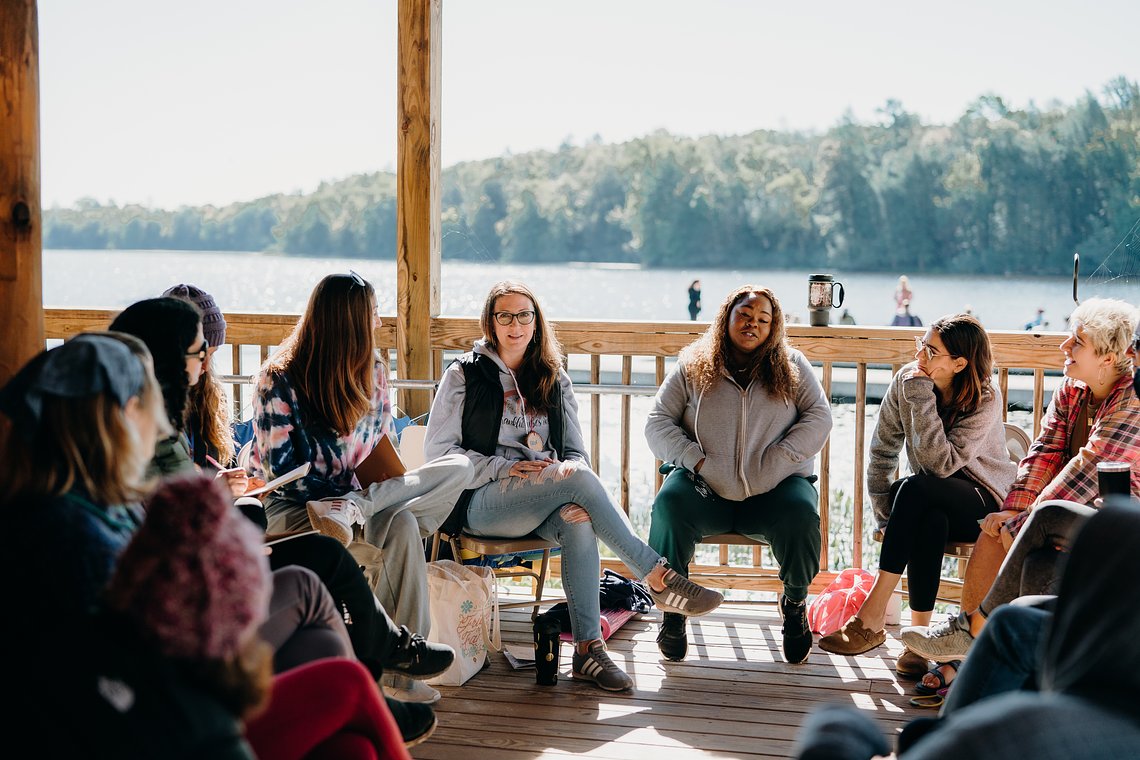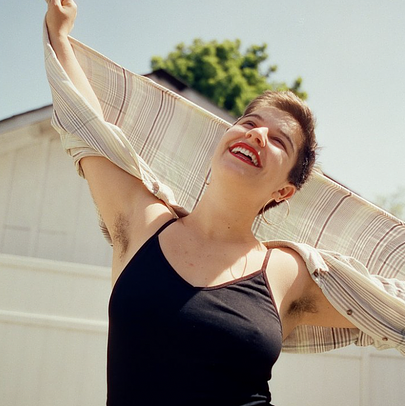Guidance for Parents and Grandparents of a Queer Child

 by Gila Axelrod
·
Sat 2 Jul 2022
by Gila Axelrod
·
Sat 2 Jul 2022
If you are reading this, it is because you are the parent or grandparent of a person who is part of the LGBTQIA+ community. And if you’re reading this, I know you care about them — deeply. You care enough to take the time to read about how you can best support and love your child/grandchild, even if there’s a part of them you might not totally understand.
I am not, and have never been a parent. However, as an educator, a proudly queer person, and someone who has close relationships with people of all generations, I’ve had hundreds of conversations with queer kids/teens as well as their parents and grandparents. What I’ve noticed, again and again, is a gaping chasm between many of the adults’ intentions and their actions. While they care — a lot — their ways of showing this are often counterproductive.
I noticed that the conversations I was having with confused and frustrated adults and, simultaneously, dejected and exhausted teens were only becoming more frequent. Parents and grandparents often tell me they feel nervous and confused, because while they may want to learn and relate to their child, they are unsure of where to start. So I wrote this letter for the well-meaning (grand)parents, to offer some guidance along the way. Whether your loved one has recently come out, or you’ve known about this part of their identity for years, I truly hope this can provide some guidance, and help you to ultimately develop the most loving, healing, and accepting relationship with your (grand)child.
Find an outlet for your worries and fears that is not your (grand)child.
Most of the parents/grandparents I’ve spoken to have shared deep concerns about the potential dangers that their child might face in the world as an LGBTQ+ person. This makes sense: you care so much about your child, and have lived in a world that has, for so long, treated queer people cruelly. You probably have a strong memory of the way that society spoke about and acted toward LGBTQ+ people when you were your child’s age, you probably know that this horrendous discrimination is far from eradicated.
I see many parents and grandparents that desperately want to protect their child from the pain that they assume they will face while living openly as a queer person, which comes from good intentions, but then manifests into a dumping of all of these worries onto their (grand)child’s head — in effect, bringing that very pain to their doorstep. What these people fail to realize in their attempts to protect, is that this act can inflict the very pain they’re trying to shield their child from. Instead of trying to shield them from the world, you can firmly and kindly stand by their side, and allow them to discover their place in it.
This is not to say that your fears are not valid, it’s just that they will only serve to make your grandchild feel bad and isolate them from you. I can promise, expressing them to your grandchild will not cause them to “decide” not to live their life as a queer person. Instead, for your own wellbeing and that of your (grand)child, I advise finding other outlets for these thoughts and feelings such as other adults, peers, a therapist, or journaling. Finding these other spaces will help you so that, when you encounter your child or grandchild, you will have already aired out many of your anxieties and be able to show them love instead of fear.
If you genuinely want to build a world that is kind to queer people, the best thing that you can do is support your child unconditionally. If your child/grandchild knows they have you in their corner, and that you accept them just as they are, they will be much more equipped to tackle, and heal from, whatever the world brings their way — while being authentically themselves. In the words of author Glennon Doyle: “a child can disregard the whole world telling her she’s not okay, as long as in her parents’ eyes she sees that she is.”
The good news: your (grand)child will be okay. In fact, they will be more than okay. There are so many thriving, vibrant, beautiful communities created by and for LGBTQ+ people — where we celebrate ourselves and each other for all of who we are. Meanwhile, the world is becoming a more accepting place each day. My friends and I agree that our queer identity is one of our favorite parts of us; an identity and community that we would not trade for the world.
You are not alone: find a support system.
There are so many other parents and grandparents out there grappling with how to best support their queer (grand)child. I highly suggest finding a support group (check out PFLAG’s website!) or just setting up regular phone calls or meetings with other adults you know in a similar situation. This can provide a healing space to share concerns, thoughts, resources, or new things that you’re learning.
See this as an opportunity to learn and educate yourself.
Finding out new information about someone you love can at first feel overwhelming, and many parents/grandparents’ initial instinct is to grow frustrated with the concepts they don’t understand (from sexual orientation to gender pronouns and more). For some, there is a sense that all of this is beyond their realm of comprehension, especially since they did not grow up in a world that used the terms and labels that are used now. But here’s the good thing: nobody is expecting you to be born knowing all of this information. None of us were — not even queer people! We all had to read, learn, and explore these concepts in order to gain an understanding of them.
Instead of seeing this as a test you could never possibly pass, you can choose to see it as a beautiful opportunity to learn something new about the world and those that you love. You may be tempted to ask your (grand)child to explain concepts, but this task can often be emotionally taxing. Instead, take it upon yourself to explore the ample resources that are available to you in this endeavor.
Social Media: Alok Vaid-Menon, Rain Dove, Madison Werner, Adam Eli, and Matt Bernstein are just a few of the incredible activists and writers who eloquently write about LGBTQ+ topics in an accessible way. Some use social media, while others have written books and articles (See: Glennon Doyle’s Untamed and We Can Do Hard Things). The Trevor Project and PFLAG have resources for family and friends of LGBTQ+ individuals on everything you could imagine, from coming out to queer history. There’s even a podcast called “Just Breathe: Parenting Your LGBTQ Teen”. When something comes up that you haven’t heard of, google is your friend.
There is nothing to be ashamed of when you do not know something. What is shameful, however, is not even trying to learn, throwing your hands up and chalking it up to being from of a different generation. You are here now. And your intentional effort to explore new concepts is a demonstration of love, care, and humility that will be invaluable to yourself, your (grand)child, and your relationship for the rest of your lives. And who knows, you may even find a new favorite book along the way.
Still, it’s okay if you don’t totally “understand”: understanding is not a prerequisite to acceptance.
I don’t need my parents and family to fully understand my sexual orientation and gender identity; I’m still figuring it out myself. However, I do need them to respect me: recognize that I know myself better than anyone else does, and respect my own autonomy over how I choose to identify, what I choose to do with my body and heart. And this is exactly what my parents have done over the past few years, as I’ve gone through the challenging process of coming to terms with my queer identity. This looks like: repeatedly telling me I can talk to them about anything, letting me know verbally that they love and support me always, attentively listening, and actively educating themselves. Small gestures matter: my dad texted me “this brought me to tears”, and attached a gay Oreo commercial, and my mom screenshots the posts of my favorite non-binary activist and tells me what she’s learned from them.
And this simple act of supporting (even if you don’t fully understand), is far from trivial. In A 2019 study by The Trevor Project (“Accepting Adults Reduce Suicide Attempts Among LGBTQ Youth”), it was found that LGBTQ+ youth who report having at least one accepting adult were 40% less likely to report a suicide attempt in the past year. You might feel the urge to question or doubt your child, especially if they’re young. But I promise you, putting your skepticism and discomfort on the back burner, and instead, being present for your child is literally a matter of life and death.
Remember what’s most important: your grandchild’s wellbeing.
My mom told me on the phone yesterday that her friend’s child came out as transgender this year. “That must have been hard for you,” my mom said to her friend, trying to empathize preemptively. “My child is happier and more confident than I’ve ever seen them,” the woman replied matter-of-factly, “the rest comes out in the wash,”. That’s it, I thought. No questions asked. This mom realized that what was most important — her child’s joy and confidence — were far more significant than any feelings she might have about her child’s pronouns or gender.
When all of this feels overwhelming, confusing, or scary, return to that simple concept. For most grandparents that I’ve spoken to, everything in the world pales in comparison when they think about their grandchild being safe and happy. Remember that the best thing you can do to support their mental health and wellbeing is to simply love them as they are, without trying to change them.
Article reposted from Medium.